Credits
87
Our OT program offers multiple pathways for you to earn a graduate degree in Occupational Therapy, including an accelerated bachelor's and an OT bridge program.
Concordia's OT program makes stepping forward in your calling as an occupational therapist attainable no matter where you are in your journey. Our multiple program pathways and hybrid course formatting will prepare you holistically through our faith-based, student-centered curriculum, and diverse, hands-on, clinical experiences. You'll graduate ready to help your patients thrive in a variety of settings.
87
We are committed to engaging your mind and spirit for service to Christ in the church and the world.
Our team is available to help you as you consider the next step in your education.
Our team is standing by to assist you with additional program details, financial aid options, and admissions questions.
Loading...
The mission of Concordia University’s Master of Occupational Therapy program is to positively impact communities by developing Christ-centered occupational therapists who empower others to reach their highest potential through leadership, best practice, advocacy, and innovation. The video below contains testimonials from both faculty and students about how Concordia incorporates faith into the classroom.
Our multiple tracks, hybrid formatting, and various articulation agreements enable us to meet you where you’re at based on your educational background:
Our full-time graduate OT program is taught in a blended format, allowing you to interact with your classmates and professors online and in person. Online coursework allows student flexibility and in-person coursework focuses on active learning and/or laboratory experiences. You’ll begin working with clients in your first year, and our curriculum offers plenty of exposure to diverse, real-world scenarios that will test your knowledge and put theory into practice.
The Master of Occupational Therapy program is accredited by the Accreditation Council for Occupational Therapy Education (ACOTE) of the American Occupational Therapy Association (AOTA), located at 7501 Wisconsin Avenue, Suite 510E Bethesda, MD 20814. ACOTE’s telephone number c/o AOTA is (301) 652-6611 and its Web address is www.acoteonline.org.
Program data specific to Concordia University Wisconsin on the National Board for Certification in Occupational Therapy (NBCOT) Exam can be found here.
Facebook Linkedin YoutubeAt Concordia, you’ll develop the skills necessary to enable people to improve their participation in their day-to-day activities.
By combining classroom, laboratory, and supervised clinic-based instruction, our occupational therapy courses train you dynamically, ensuring your preparedness for the variety of scenarios you'll encounter in your career as an OTR. As a student, you’ll have multiple opportunities for client contact, ranging from children to older adults, school systems to factories, and acute care to community wellness programs. Some of these experiences are clinical fieldwork placements, while others are client evaluation and consultation in a classroom or community setting. All students must complete 24 weeks of Level II fieldwork within 24 months following the completion of the didactic portion of the program.
Students should expect to pay the tuition and fees as noted on the Tuition & Fees tab.
Graduates of Concordia's occupational therapy programs are eligible to sit for their national examinations to become OTRs. Learn more about our program outcomes and the OTR licensure/certification process on the outcomes tab.
What I appreciate most about this occupational therapy program is the extensive support, resources, and guidance provided by my professors. Given that this program is predominantly online, it is crucial to have educators who possess specific qualities to compensate for the absence of face-to-face interactions typical of traditional classes. These attributes consist of efficient communication, immediate response to student questions, clear and well-structured presentation of course content, availability for virtual meetings or consultations, willingness to give constructive feedback on assignments, and the capability to support an interactive online learning atmosphere. Overall, I wholeheartedly recommend this program to any practicing COTA seeking unique opportunities to enhance their expertise, skills, and professional scope within our dynamic and fulfilling field.
All applicants to the Master of Occupational Therapy (MOT) Program must meet the following criteria:
Applicants will also be required to submit the following:
All accepted students will be required to submit a $500 tuition deposit within four (4) weeks of acceptance to hold their spot in the program. Learn more about our expected OT tuition and fees here.
Please contact Graduate Admissions for the current admissions deadline.
International applicants who would attend on a student visa and whose native language is not English must show proficiency in the English language. The test score cannot be more than two years old at the time of application. The minimum TOEFL score is 89. The minimum IELTS score is 6.5. The minimum Duolingo score is 120. There are no exceptions to the TOEFL, IELTS, or Duolingo requirement for the OT program. International applicants will be admitted through the CUW International Office, and are subject to International Office policies, in coordination with graduate admissions.
All students are required to complete the Essential Functions of an Occupational Therapy student, without or with accommodations.
Click here to access the Occupational Therapy Program Essential Functions
Students entering the Occupational Therapy program will need access to a computer that meets the following requirements. We highly recommend purchasing a laptop for portability. Please note: some of these requirements are slightly different than the general university tech requirements due to the required software in OT courses.
Occupational Therapy Technology Requirements
Optional, but recommended:
Please Note:
Assistant Professor
Office: Heidelberg Hall 205
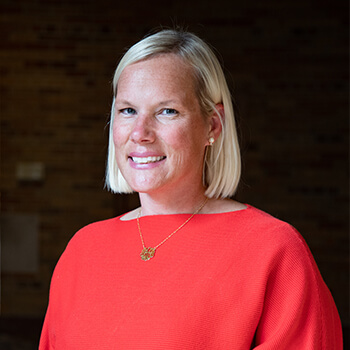
Coordinator - OT Doctoral Capstones, Assistant Professor
Office: Heidelberg Hall 205
Phone: (262) 243-2164
Dr. Stephanie Bonk is the Doctoral Capstone Coordinator. She works with the OTD students with completion of their capstone planning and experiences. Her professional experience in occupational therapy is in skilled nursing, outpatient, home health, and management. Her research interests include student success, caregiver support, and geriatrics.
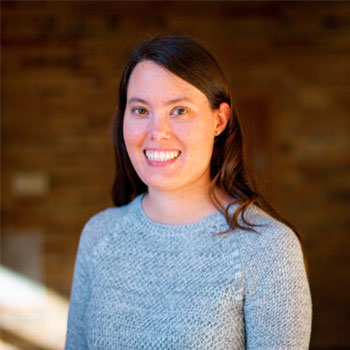
Professor
Office: Heidelberg Hall HE222
Phone: (262) 243-4234
Dr. Borst is an Occupational Therapist and a Certified Hand Therapist, with a special interest in the interaction between Christian faith, education, and vocation. He teaches Occupational Kinesiology and Orthopedic Rehabilitation. He is interested in applying research findings to the clinic and classroom, and has taught evidence-based differential diagnosis, physical agents, and upper extremity rehabilitation to national and international audiences. Dr. Borst is certified by the National Board for Certification in Occupational Therapy as an Occupational Therapist-Registered (OTR), is licensed by the State of Wisconsin to practice as an Occupational Therapist, and is certified by the Hand Therapy Certification Commission as a Certified Hand Therapist (CHT).
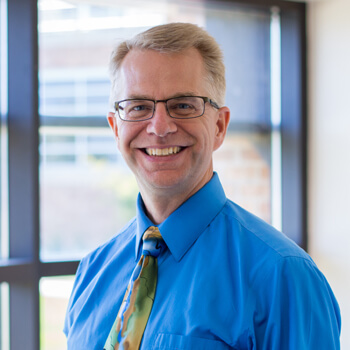
Coordinator - Academic Fieldwork Coordinator, Clinical Assistant Professor
Office: Health Services HS 133
Phone: (262) 243-2043
Stacey Kukor is currently the Academic Fieldwork Coordinator in the OT Program. Her passion is placing students in great clinical learning opportunities. She graduated from Concordia University with a Masters of Occupational Therapy in 2001, and received her OTD from Mount Mary University in 2020. Stacey is currently an active member at St. Paul's Lutheran Church and School in West Allis.
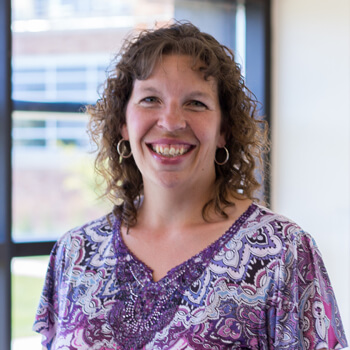
Assistant Professor
Office: Heidelberg Hall 221
Phone: (262) 243-4261
Dr. Anne Martin has 15 years experience in occupational therapy. Clinical practice includes working in acute care, memory care, outpatient, and assisted living facility. She currently teaches Clinical Reasoning - Gerontology and in the Community Clinic.<br><br>Dr. Martin graduated from Creighton University with a doctorate of occupational therapy in December 2021. Additionally, Dr. Martin has received her Master of Occupational Therapy and Bachelor of Arts - Psychology from St. Ambrose University in 2009 and 2008, respectively. She earned the Board Certification in Gerontology from American Occupational Therapy Association.
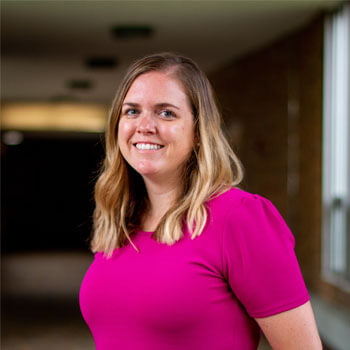
Associate Professor
Office: Heidelberg Hall H222
Phone: (262) 243-2041
Dr. Mike McKinnis teaches adult rehab courses in the CUW OT Department. His research interests are Fall Prevention with community-dwelling adults, clinical simulation, and Interprofessional Education. He has presented both locally and nationally on fall prevention.
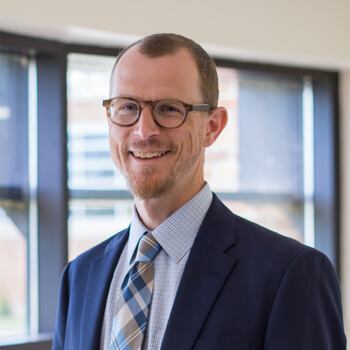
Assistant Professor
Office: Heidelberg Hall 215
Phone: (262) 243-4363
Dr. Oduro earned her doctorate degree in occupational therapy from Washington University in St. Louis in 2010. As a student, she conducted research exploring activities, roles and quality of life in adolescents with anorexia nervosa, and exploring variables contributing to activity limitations in adults with upper extremity nerve disorders. Dr. Oduro began her career as an occupational therapist practicing in inpatient rehabilitation in 2011. She has worked with clients with spinal cord injuries, amputations, and brain injuries in St. Louis, Boston and Cleveland including the Rehabilitation Institute of St. Louis and Spaulding Rehabilitation Hospital. She transitioned into academia in 2020 adjunct teaching in the occupational therapy program at Cleveland State University, and an occupational therapy assistant program at Bryant and Stratton College.
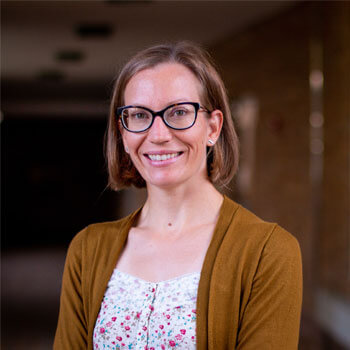
Dean - School of Health Professions, Professor
Office: Heidelberg Hall H201
Phone: (262) 243-4469
Linda Samuel is the Dean of the School of Health Professions. She began her career at CUW as a member of the Occupational Therapy Department teaching Behavioral Health and a variety of foundational courses. She later held the position of the Chair of the Occupational Therapy Department for 8 years.
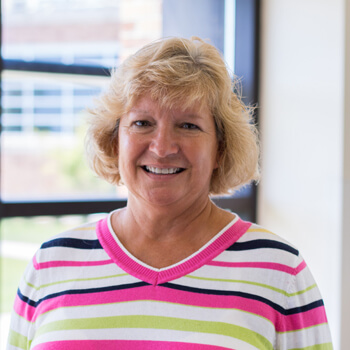
Assistant Professor
Office: Health Services HS101R
Phone: (262) 243-4395
I obtained my degree from UW-Milwaukee. My clinical expertise includes adult rehabilitation in the ICU, acute, and inpatient rehab settings with a specialty in neurological rehabilitation. I am certified in physical agent modalities, LSVT Big.
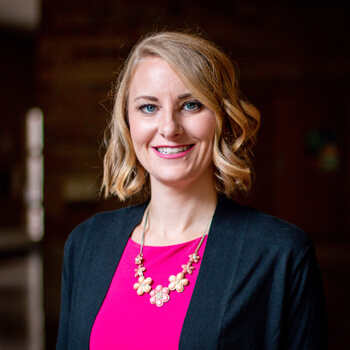
Assistant Professor
Office: Heidelberg Hall 103
Phone: (262) 243-2206
AmyJo is a CUW alumnus (BS ’97; MOT ‘00) with experience as an adult OT and Healthcare Leader. She has worked in SCI, Industrial Rehab, Outpatient, Skilled Nursing and Sub-Acute Care, Clinical Training, Consulting, Acute Care, and Leadership.<br><br>AmyJo is passionate about educating others, facilitating clinical and personal growth and leadership skills. Her passions include the development of clinical reasoning through practical and theory experience, dementia and spirituality, aging in place, fall prevention, well-elderly programming, and the vocational calling to serve others in the community and in the church. <br><br>She is currently pursuing her PhD in Leadership and Gerontology at Concordia University Chicago. She is expected to defend her dissertation in August 2023.
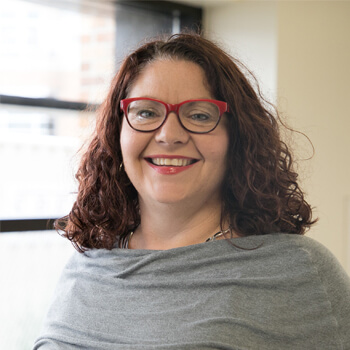
Assistant Professor
Office: Heidelberg Hall 221
Phone: (262) 243-4288
Dr. Vergo has practice experience across the lifespan and multiple settings, with primary emphasis in outpatient pediatrics. She has been involved with content creation and speaking engagements for Pathways.org; the American Occupational Therapy Association; and the American Congress of Rehabilitation Medicine. Her current interests include the occupational impact of pediatric and maternal behavioral health and professional longevity (a.k.a. burnout prevention) for healthcare workers. As a first-generation college student, Dr. Vergo is also interested in factors that influence recruitment and retention of students in graduate level OT programs. Dr. Vergo is a Certified Organizational Trainer for Inspiring Comfort.
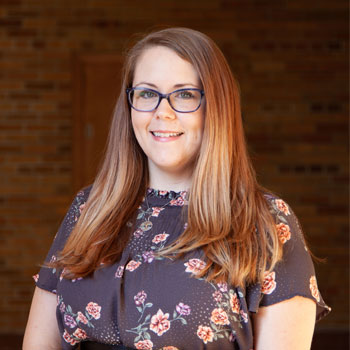
Department Chair - Department of Master of Occupational Therapy (MOT) and Doctor of Occupational Therapy (OTD) Programs, Associate Professor
Office: Health Services HS115
Phone: (262) 243-2044
Completed B.A. in psychology from Wisconsin Lutheran College in 2003, MOT from Concordia University WI in 2007, and PhD in Special Education from Northcentral University in 2019. Clinical practice experience in early childhood/ school-based occupational therapy and adult acute care practice.
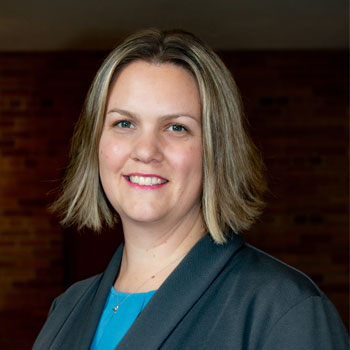
Please join us for an upcoming virtual info session and learn more about our program and all of the benefits of getting your Master of Occupational Therapy. Click here to register.
The face-to-face track of the MOT program has a Spring term start, meaning courses begin in January, according to the university academic calendar. The program is offered in a hybrid format with classes meeting 1 time per week and the remaining course content and activities occurring in asynchronous format online. When not on-campus, students should expect to complete coursework independently and collaboratively online during the remainder of the week. Select courses throughout the program will be offered solely online in which students are expected to learn collaboratively. The program runs year-round, with full Spring, Summer and Fall terms. Students can complete the program in 24 months.
Students in the face-to-face track should anticipate having in-person class Tuesdays and Thursdays from 7:30am - 5:00pm on CUW's Mequon campus. Wednesdays may have required participation in school activities, such as Level I Fieldwork experiences, Interprofessional Education (IPE) and cross-cohort mentorship, and must maintain a level of flexibility in scheduling. Some class requirements may be completed off-campus at designated community locations. Students will be responsible for transportation to all off-campus community locations.
There are 2 types of fieldwork experiences in occupational therapy education: Level I and Level II. Level I experiences are designed as brief exposures to a variety of practice settings and populations. All students must complete a Level I experience in behavioral/mental health. Students may choose to take up to 2 additional Level I experiences during the program. These additional opportunities will vary from semester to semester.
Upon completion of didactic coursework, all students will complete two 12-week Level II Fieldwork placements. These consist of full-time, hands-on experiential learning at community sites, under the supervision of a licensed occupational therapist. Through Level II placements, students will develop knowledge and skills in 2 different practice settings to continue preparation for the national licensure exam. CUW’s Academic Fieldwork Coordinator works to secure sites in each student’s geographic area of preference.
Students are assigned an academic advisor from the OT faculty at the start of the program. Starting in the first term, students will be involved in our interprofessional community Clinic, which serves clients across the lifespan. As students progress through the program, their involvement and autonomy in evaluation and treatment of clients will increase. The OT program has embedded a student mentorship model for students to work with others in their track as both mentor and mentee. CUW OT students can be involved in student and professional organizations, the Pi Theta OT honor society, and faculty-mentored research opportunities. CUW’s Interprofessional Education (IPE) events encourage students to work through real-world scenarios with a team of future health professionals.
Students in the MOT program have the opportunity to explore the entry-level Occupational Therapy Doctorate (OTD) degree during the second term of the MOT program. Students can stay in the MOT program or apply to the OTD program at that time.
This traditional entry to graduate school is designed for students who hold a bachelor's degree in any subject area and are prepared to complete their MOT in 2 years or OTD in less than 3 years.
This fast-track entry to CUW’s occupational therapy program is designed for high school graduates eager to pursue both their bachelor’s and graduate degrees (MOT or OTD) in occupational therapy in less than 5 years. Students spend 5 semesters working on completion of CUW core courses and the major courses for the Bachelor of Science in Rehabilitation Science (BSRS) degree. Beginning in spring of junior year, students begin graduate level courses in a hybrid format.
Students who begin their undergraduate career as a freshman in Concordia University Wisconsin’s Bachelor of Science in Rehabilitation Science (BSRS) program may apply to the MOT program during the spring of their sophomore year.
Interested high school students will apply to CUW for the BSRS program and must meet entrance requirements for the university. To be accepted to the MOT program, students must earn a cumulative 3.0 GPA while at CUW, earn a grade of B or higher in 8 credits of Anatomy & Physiology (BIO 1801, BIO 1802and/or RSC 3020) taken at CUW, and earn a grade of B or higher in 3 credits of Statistics or Evidence-Based Practice and Basic Statistics (RSC 2010).
Applicants with a high school GPA of 3.2 who apply and submit the tuition deposit prior to December 1st are considered for guaranteed direct admission. Those who meet these requirements will be reviewed and ranked according to GPA. The top 30 applicants will receive guaranteed status for the MOT Program. In order to maintain guaranteed status and to be accepted to the MOT program, students must maintain a 3.0 cumulative CUW GPA, earn a grade of B or higher in 8 credits of Anatomy & Physiology (BIO 1801, BIO 1802 and/or RSC 3020) taken at CUW, and earn a grade of B or higher in 3 credits of Statistics or Evidence-Based Practice and Basic Statistics (RSC 2010).
Students transferring into CUW’s BSRS program will not have guaranteed status for the MOT program but can declare ‘pre-OT’. Transfer students must complete at least 36 credits at CUW to be given priority in the MOT admission process and must include the following courses taken at CUW, as well as meet all other admissions requirements:
BIO 1801 Anatomy and Physiology I
BIO 1802 Anatomy and Physiology II
RSC 3020 Advanced Anatomy
Please join us for an upcoming virtual info session and learn more about our program and all of the benefits of getting your Master of Occupational Therapy. Click here to register.
The Master of Occupational Therapy (MOT) Program - Bridge track is designed for the Certified Occupational Therapy Assistant (COTA) with at least one year of experience.
Students in the MOT program - Bridge track can expect to complete coursework in a blended format. Coursework starts in the fall term and runs year round with full-time fall, spring and summer terms. Students should expect to complete coursework asynchronously online every week, with some group work expected. Select courses throughout the program will be offered solely online in which students are expected to learn collaboratively. Students should anticipate traveling to CUW's Mequon campus approximately once a month (18 times) for in-person learning experiences. Classes run Friday 12 pm-9 pm and Saturday 8 am-5 pm with a one-hour break each day. Students will be responsible for transportation to all off-campus community locations. Students are responsible for all costs associated with traveling to campus, including housing and meals. Due to the courseload of the MOT program, it is not recommended for students to work full-time.
There are 2 types of fieldwork experiences in occupational therapy education: Level I and Level II. Level I experiences are designed as brief exposures to a variety of practice settings and populations. All students must complete a Level I experience in behavioral/mental health. In the Bridge track, this is often completed via telehealth. Students may choose to take up to 2 additional Level I experiences during the program. These additional opportunities will vary from semester to semester.
Upon completion of didactic coursework, all students will complete two 12-week Level II Fieldwork placements. These consist of full-time, hands-on experiential learning at community sites, under the supervision of a licensed occupational therapist. Through Level II placements, students will develop knowledge and skills in 2 different practice settings to continue preparation for the national licensure exam. CUW’s Academic Fieldwork Coordinator works to secure sites in each student’s geographic area of preference.
Students are assigned an advisor from the OT faculty at the start of the program. Starting in the first term, students will be involved in our interprofessional community clinic, which serves clients across the lifespan. As students progress through the program, their involvement and autonomy in evaluation and treatment of clients will increase. The OT program has embedded a student mentorship model for students to work with others in their track as both mentor and mentee. CUW OT students can be involved in student and professional organizations, such as the Pi Theta Epsilon OT honor society, and faculty-mentored research opportunities.
Students in the MOT program explore the entry-level Occupational Therapy Doctorate (OTD) degree during the second term. At that time, students are given the choice to continue in the MOT program or apply to the OTD program.
Applicants holding a completed bachelor's degree must apply for direct admission to the MOT program - Bridge track.
Applicants whose highest degree is an associate degree must first apply for the BSRS Bridge program. During the first semester of the BSRS Bridge program, students will apply to the MOT Program.
| Graduation Year | Program Graduates | Graduation Rate |
|---|---|---|
| 2022 | 64 | 102% |
| 2023 | 33 | 73% |
| 2024 | 45 | 94% |
| 3 year total | 142 | 91% |
Graduates of the program may sit for the national certification examination for the occupational therapist administered by the National Board for Certification in Occupational Therapy (NBCOT). After successful completion of this exam, the individual will be an Occupational Therapist, Registered (OTR). In addition, all states required licensure in order to practice; however, state licenses are usually based on the results of the NBCOT Certification Examination. Note that a felony conviction may affect a graduate’s ability to sit for the NBCOT certification examination or attain state licensure.
The following table outlines the potential cost of attendance for a student in the MOT Program. These costs are subject to change based on cost of textbooks, change in textbooks, and/or change in fee amounts from the University. Students in the accelerated track may have additional fees while finishing the undergraduate degree. Information about these fees may be obtained from the undergraduate billing.
Please note all accepted students will be required to submit a $500 tuition deposit within four (4) weeks of acceptance to hold their spot in the program.
| Semester 1 | Semester 2 | Semester 3 | Semester 4 | Semester 5 | TOTAL | |
|---|---|---|---|---|---|---|
| TUITION* | $15770 | $15770 | $15770 | $15770 | $15770 | $78,850 |
| CUW Student Fee (Face-to-face track) | $184 | $184 | $184 | $184 | $184 | $920 |
| CUW Student Fee (Bridge track) | $144 | $144 | $144 | $144 | $144 | $720 |
| VH Dissector Fee | $75 | -- | -- | -- | -- | $75 |
| EMR Fee | -- | $150 | -- | -- | -- | $150 |
| AOTA Annual Student Membership | $75 | $75 | $150 | |||
| Textbooks & Materials** | $1000 | $1200 | $400 | $300 | -- | $2,900 |
| Total | $17,064 - $17,104 | $17,264 - $17,304 | $16,389 - $16,429 | $16,214 - $16,254 | $15,914 - $15,954 | $82,845 - $83,045 |
*Tuition is based on students who begin in the 2024-2025 Academic Year. Tuition increases each academic year, typically by 3-5% and is released for publication in June.
**The textbook & material cost is an estimate based upon current requirements and could change while enrolled in the program if a required textbook changes. Students are independently responsible for purchasing their textbooks, which could increase or decrease the total cost. Due to the use of a three term (fall, spring, and summer) academic calendar, textbooks may be purchased during the summer instead of fall or spring, which would change the cost per term of textbooks.
Note: students who bring a car to campus will be required to register their vehicle and pay vehicle registration fees as determined by the university. Further information can be found on the Parking and Vehicle Registration page.
Travel costs will vary from student to student within our tracks. All students will have a one-week residency during Summer 2, which could include transportation, housing and food costs. Students will also accrue travel costs for the Level II Fieldwork as placements can be located as much as an hour away via car.
Students in the Bridge Track should plan for travel to campus 4 times during Semesters 1, 2, 3 & 4, as well as 2-3 times during the first and third summers. This travel will include, at minimum, one overnight stay and all travel-related costs, including gas, car rentals, airfare, and food. Students may need to plan for travel costs to get to our Community Clinic sites located off-campus.